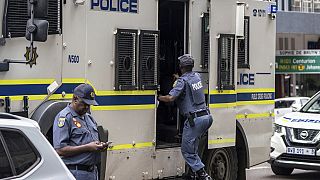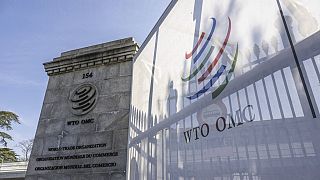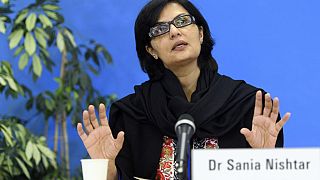Switzerland
French-Israeli diamond magnate Beny Steinmetz was sentenced by a Geneva court on Friday to five years behind bars for corruption linked to mining rights in Guinea.
After a seven-year international investigation, the 64-year-old businessman was accused of setting up a complex financial web to pay bribes so that Beny Steinmetz Group Resources (BSGR) could obtain permits in an area estimated to contain the world's biggest untapped deposits of iron ore.
"It is clear from what has been presented... that the rights were obtained through corruption and that Steinmetz cooperated with others" to obtain them, said chief justice Alexandra Banna.
The court, she said, had therefore sentenced him "to a deprivation of liberty for five years", in line with the prosecutors' request.
The court also granted the prosecution's call for Steinmetz to pay 50 million Swiss francs ($56 million, 46 million euros) in compensation to the Geneva canton.
'Big injustice'
Steinmetz, who throughout the trial has maintained his innocence, told reporters at the Geneva courthouse the verdict was a "big injustice".
"I will be appealing immediately," he said in a statement, complaining that he had faced "10 years of manipulation and lies".
His lawyer Marc Bonnant told reporters the appeal would be filed Saturday, citing "contradictions and errors" in the ruling.
The trial, which began on January 11, was the culmination of a drawn-out international investigation that kicked off in Switzerland in 2013.
Swiss prosecutors accused Steinmetz and two partners of bribing a wife of the then Guinean President Lansana Conte and others in order to win mining rights in the southeastern Simandou region.
The prosecutors said Steinmetz obtained the rights shortly before Conte died in 2008 after about $10 million (8.2 million euros) was paid in bribes over a number of years, some through Swiss bank accounts.
Conte's military dictatorship ordered global mining giant Rio Tinto to relinquish two concessions to BSGR for around $170 million in 2008.
Just 18 months later, BSGR sold 51 percent of its stake in the concession to Brazilian mining giant Vale for $2.5 billion.
But in 2013, Guinea's first democratically-elected president Alpha Conde launched a review of permits allotted under Conte and later stripped the VBG consortium formed by BSGR and Vale, of its permit.
'Pact of corruption'
To secure the initial deal, prosecutors claimed Steinmetz and representatives in Guinea entered a "pact of corruption" with Conte and his fourth wife Mamadie Toure.
Toure, who has admitted to having received payments, has protected status in the United States as a state witness.
She and a number of other key witnesses in the case failed to appear.
Steinmetz, who lived in Geneva during the years when the bribes were allegedly paid, insisted during his trial that he "never" asked anyone to pay Toure, insisting she "told a lot of lies".
But on Friday, judge Banna found that "the money paid to Mamadie Toure did indeed originate from BSGR."
She also said that there had been no reason for Conte to withdraw Rio Tinto's mining concessions "unless it benefitted him personally or someone else, namely his fourth wife."
The defense also charged during the trial that Toure was not in fact Conte's wife, but merely a mistress with no influence, who under Swiss law did not fall within the scope of a corruptible official.
But Banna stressed that she should indeed be considered "Conte's fourth wife, regardless of whether it was a traditional marriage".
Steinmetz had also during the trial attempted to downplay his role in BSGR, insisting he was a mere "consultant".
But this was also rejected by the court, with Banna finding he clearly was "deeply involved" in all the group's financial decisions.
Steinmetz was tried along with two associates, who received lesser sentences.
Steinmetz was "the main beneficiary of the crime," Banna ruled, adding that "the court does not recognize any mitigating circumstances".
AFP











Go to video
Heavy equipment needed to clear rubble destroyed in Israeli strike on Jabaliya
Go to video
Tunisia jails opponents, critics of President Saied
Go to video
Uganda plans law to allow military prosecution of civilians
01:49
For Palestinians in Gaza, the ongoing ceasefire negotiations signify little hope
Go to video
Meta boss Mark Zuckerberg takes the stand in antitrust trial
01:05
Israeli tourists barred from Maldives as act of support for Palestinians